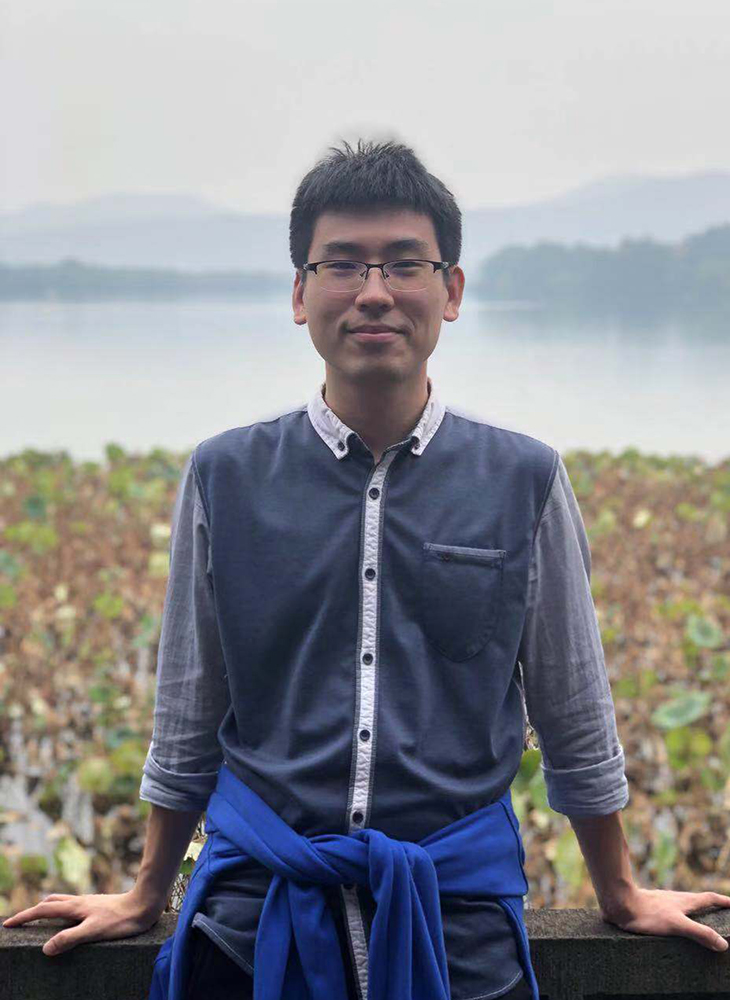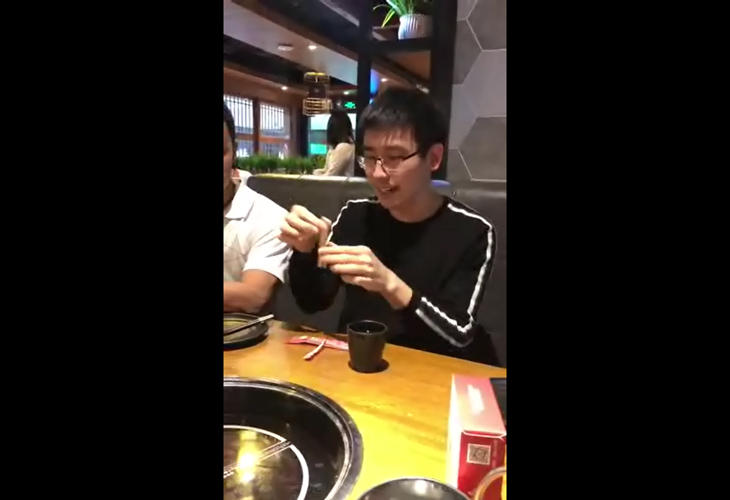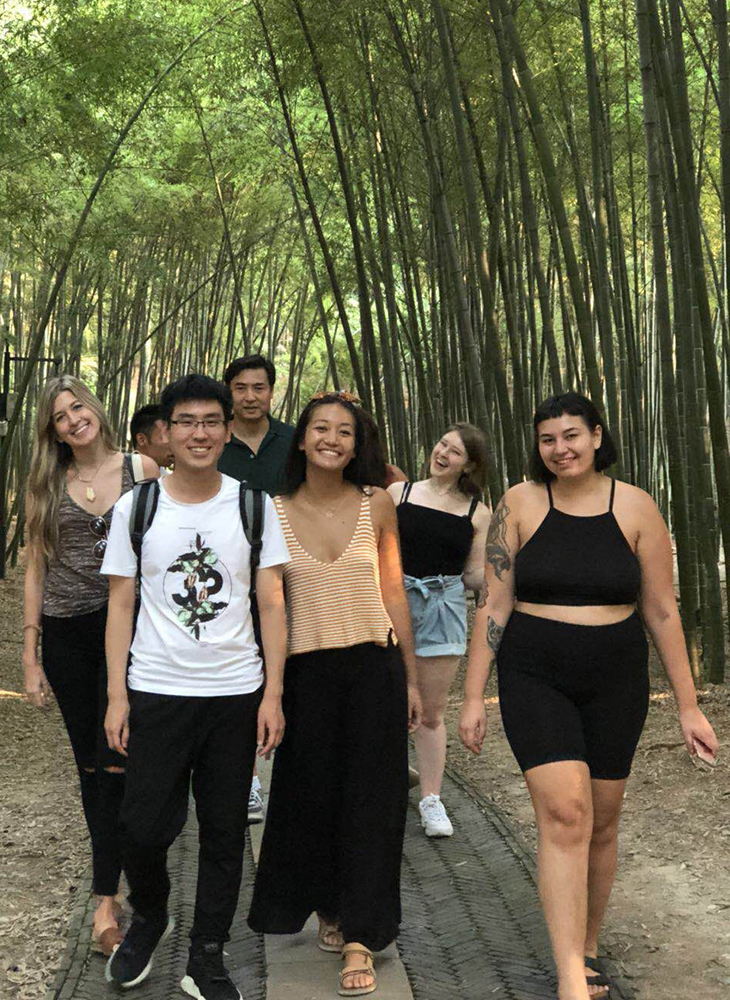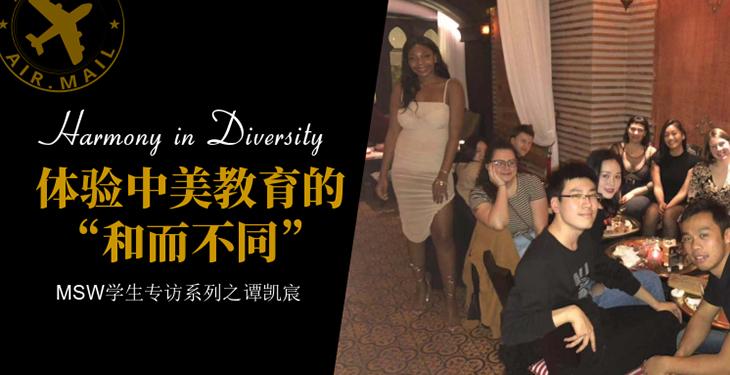NYU Shanghai and NYU Silver’s joint MSW program at Shanghai and New York is the epitome of Sino-US educational collaboration, which not only brings together the best of the academic and field resources in China and the US, but also inspires and engages students to explore the complementarity of the two countries in a diverse and inclusive environment.
The Office of Graduate and Advanced Education recently interviewed Kaichen Tan (‘20 MSW) who shared with us the “harmony in diversity” he has experienced in a Sino-US education.
Kaichen graduated from Sun Yat-sen University majoring in Psychology. He became interested in social work when conducting undergraduate research into children’s behavioral problems, and chose to further his study in social work to hone his professional skills and help more people in need. As a beginner in the social work field, Kaichen feels hopeful while unassured. He realizes that social work as a profession still needs building and developing in China. Through the MSW program’s twin-cities experiences in Shanghai and New York, Kaichen aims to get a comparative perspective of the different stages of social work development in China and the US, not only just to draw on the good practices from overseas but also to truly understand the local needs and situations to crystallize his career path.

MSW 2020 Student: Kaichen Tan
Q: How is your experience studying MSW at NYU Shanghai?
A: First and foremost is the difference between Chinese and American education. I completed my undergraduate study in China, and I have some Chinese graduate student co-workers at my fieldwork placement. While exchanging experiences on school curriculum, homework, internship requirement and so on, we find that Chinese education tends to emphasize hard requirements with many gritty details. By contrast, our program gives students a higher degree of freedom, encouraging us to observe and think, to form our own opinions and to present them well. The critical thinking skills taught by the professors are very helpful tools, and we call it a success as long as we have a meaningful observation and thinking during the learning process.
Initially, the language and culture barriers did exist between Chinese students and international students. I mingled well with several American students and started to reach out to the international students and engage them in social activities. For instance, I find many of us are gourmets, so I initiated a series of Culinary Adventures - every Tuesday after class we will have dinner together. We’ve tried hotpot, Xinjiang, and Shanghai cuisines, just to name a few, and my classmates are so impressed. Our American classmates have promised that they will lead us (non-US students) to fully experience the American culture during the second year in New York too!
As a Chinese student, to read, think and write extensively in an English environment is quite challenging in the beginning, not to mention to socialize with classmates. Thanks to the MSW program, I can spend the first year in China with a process of adaptation, to improve the language skills in a relatively familiar setting and to understand different cultural background. I trust I will not be alone and can easily blend in during my second year in the US.

Kaichen is teaching international students using chopsticks for hotpot (click here to watch)
Q: Can you share your fieldwork experience with us?
A: I have been interning at Ziqiang Social Services, which is an anti-drug institution with a long history. I got to know the working mode and current situations of Chinese social workers. I have known two types of social workers. One is working at the front line; usually, they are quite experienced but with no relevant degrees. They directly provide services to people and conduct regular communication and check-ups. The other type is the management level professionals based in headquarters; usually, they have relevant social work education background, and deeply understand this industry. Take our mentor for example - during our work, she always reminds us to think why we want to be a social worker and what our goals are, and also guides us through different case studies to let us learn how to effectively help others as well as how to consider things under ethical restrictions.
At Ziqiang, I am mainly in charge of Project Sunflower, which is designed as an after-school program for the children from drug-related families. In fact, we aim to know about their living situations through tutoring and provide help to them if they need further assistance. The reason that the project is designed this way is that we understand that some of the parents might think it as a taboo when we talk about psychological issues of their children, but they are always happy to receive help to improve their children’s academic performance. I think this is how we provide social service - to find an appropriate communication point to reach out to people and provide the help that they truly need.

Kaichen and his classmates
Q: Can you talk about your personal future plan and expectations?
A: In the second year of the MSW program in New York City, students can choose field placements based on their interests. I will choose opportunities in public policy sector as I am more interested in macro-level issues. I always think about the reasons that lead to social problems like income disparity and the “mourning culture” that prevails among young people. I always try to seek ways to solve those problems through a policy-making perspective.
I did not think much about my role in society before college. I got to know many role models through my graduate study and practical experience. For instance, the company I interned at before is an internet company that aims to use data analysis to help NGOs, and its CEO is an excellent female leader who has a very clear vision of what she wants to do whilst feeling proud of it. On the other hand, however, when we look at some large corporations, we can always see that many of them only focus on pursuing profits without a sense of social responsibility or moral bottom lines. I hope my career can resonate with my value and will strive for a balance and combination point between ideal and reality.
After graduation, I hope to work in the US for a while to gain more experiences and come back to China in the long run. As the saying goes, “With great power comes great responsibility” - I hope to bring positive changes to the world and solve social problems with my ability and resources.


